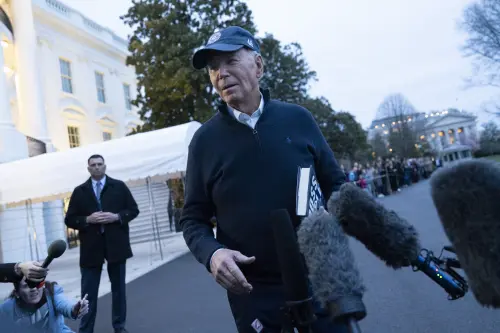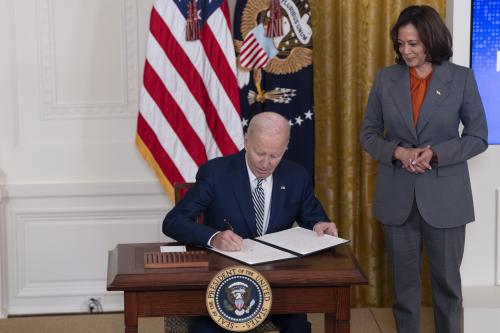Last week, President Trump issued an executive order on preventing online censorship. The order argues that online platforms have dramatic power to influence the public’s view and therefore should not be given the freedom from legal liability that comes with being a web-based publisher. Rather than being neutral arbiters, Trump claims the platforms moderate content based on political leanings and demonstrate bias in their dissemination of political speech. While there is some evidence for the existence of political bias, I argue the executive order will create significant problems without achieving its purpose of promoting free speech or preventing censorship.
Section 230(c) liability protections CAME with no strings attached
The main focus of the executive order is the Communications Decency Act Section 230(c) which provides immunity from liability to interactive computer services (such as an online platforms) for the content created by their users. The executive order incorrectly states that the purpose of granting such immunity was “to provide protection for those who purport to provide users a forum for free and open speech”, and “to provide protections for online platforms that attempted to protect minors from harmful content and intended to ensure that such providers would not be discouraged from taking down harmful material.”
Although 47 U.S.C. 230(c) provides legal protections to online platforms that no other industry enjoys, such favors were not provided in exchange of neutrality or promoting free speech. Congress did not provide liability protections because online platforms promised to be neutral and to not moderate their content.
U.S.Congress has provided these platforms liability protections because at the time, it decided that it was the best thing to do in order to allow these platforms to flourish and to maintain U.S. leadership in internet technology. Simply put, Congress decided to allow these platforms to grow without being limited by lawyers or politicians. Congress went out of its way to be crystal clear about its intent in the preamble of 47 U.S.C. 230(b), which reads:
“It is the policy of the United States (1) to promote the continued development of the Internet and other interactive computer services and other interactive media; (2) to preserve the vibrant and competitive free market that presently exists for the Internet and other interactive computer services, unfettered by Federal or State regulation; [and] (3) to encourage the development of technologies which maximize user control over what information is received by individuals, families, and schools who use the Internet and other Interactive computer services”
Removing section 230(c) protections hurts American businesses
After more than two decades since passage of the Communications Decency Act, we can clearly observe how immensely it has benefited not only U.S. technology firms, but more broadly, the internet-using public. All major online platforms started and grew in the U.S. and helped to keep America the world leader in information technologies in part because no other developed market in the world provides such protections for these platforms. Removing such protections and regulating social media, would greatly diminish the competitive advantage of U.S. companies, something that is in stark contrast to the administration’s general approach towards deregulating industries.
Removing section 230(c) protections does not foster free speech
More importantly, repealing this section will not hinder the ability of the online platforms to moderate their users’ content, nor will it promote free speech. This is because users agree with the terms of service by these platforms in which they grant them every right to use and moderate their content as they wish. In other words, some companies can oppress certain messages, or suspend any of its users’ accounts because the users themselves have given it the right to do so when they signed-up.
As I have discussed before, it is impossible to treat social media as publishers because of the amount of content that users generate on these platforms. Interestingly, if these platforms were to be considered publishers and their moderation of content was considered a form of speech, they will have even stronger legal protections under U.S. strict libel laws.
More importantly, the First Amendment does not allow anyone, including the American president or even a democratically elected Congress, to determine what a private company can or can not express. That means, if the moderation of content is considered as a form of speech, then with First Amendment protections, social media companies can moderate the content of their users with no restrictions, just like all other news media in the United States. Fortunately, these protections are so strong, that even the most powerful and most litigious man on earth has not been able to sue any of the media that he argues to be “fake” and “enemy of the people”.
Section 230(c), along with the libel laws and the first amendment are quintessentially American. These are prime examples of the set of laws and regulations that have made America great, and it would be a major contribution forPresident Trump to keep it that way.




Commentary
Why Trump’s online platform executive order is misguided
June 4, 2020